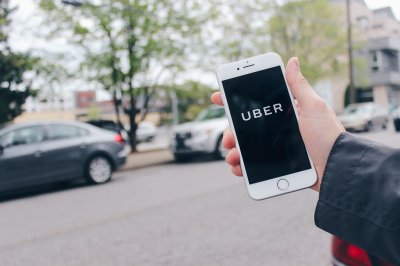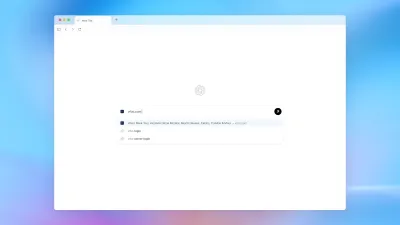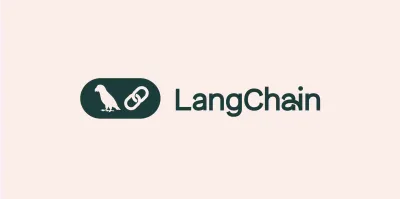Uber Transforms Its App into an AI Training Ground, Offering Drivers New Income Streams
By: @devadigax

Uber, the global ride-hailing and food delivery giant, is once again redefining the boundaries of the gig economy. In a strategic move that blurs the lines between traditional service work and advanced technological development, the company today announced a new pilot program designed to leverage its vast network of US drivers and couriers for a critical task: training artificial intelligence models. This initiative marks a significant evolution in Uber's quest to become the ultimate platform for "flexible work," by enabling its workforce to earn extra money through performing "microtasks" directly within the Uber app.
The pilot, currently rolling out to a select group of drivers and couriers across the United States, introduces a novel opportunity for supplemental income. Instead of solely focusing on rides or deliveries, participants can now engage in a variety of AI-centric tasks. While the initial announcement highlighted activities such as audio voice recording and capturing and uploading images, the scope of such microtasks in the AI industry is vast, potentially including data categorization, text annotation, sentiment analysis, object identification in videos, and transcription services. This innovative approach positions Uber not just as a logistics provider, but as a significant player in the burgeoning field of AI data collection and annotation.
At its core, the initiative addresses a fundamental need in the artificial intelligence ecosystem: high-quality, human-labeled data. AI models, particularly those based on machine learning and deep learning, are only as good as the data they are trained on. For an AI to accurately recognize a pedestrian, understand a spoken command, or navigate a complex urban environment, it first needs to be fed millions of examples of what those things look and sound like, meticulously labeled by humans. This process, often referred to as data annotation or data labeling, is labor-intensive but absolutely essential for developing robust and unbiased AI systems.
For Uber, the benefits of this pilot are multi-faceted. Firstly, it provides a cost-effective and highly scalable method for acquiring vast amounts of training data. Rather than outsourcing to third-party data annotation firms, Uber can tap into an existing, distributed, and readily available workforce that is already familiar with its platform. This not only streamlines the data collection process but also potentially reduces costs, allowing Uber to invest more resources directly into AI development. Secondly, this data can be directly applied to improve Uber's own internal AI systems, enhancing everything from route optimization and estimated arrival times to customer service chatbots, fraud detection, and even future autonomous delivery solutions.
From the perspective of drivers and couriers, the program offers a compelling new avenue for income generation. The "flexible work" model has always appealed to those seeking autonomy and control over their earnings. By integrating microtasks directly into the app, Uber provides an opportunity to earn money during downtime between rides or deliveries, or even when demand for transportation services is low. This could prove particularly attractive during off-peak hours or in areas with fluctuating demand, offering a more stable and diverse income stream for gig workers who often face unpredictable earnings. The low barrier to entry for these tasks means almost anyone can participate, requiring minimal training beyond understanding the specific instructions for each task.
However, such an innovative program also comes with its share of challenges and ethical considerations. One primary concern revolves around data quality and consistency. Ensuring that thousands of individual contributors consistently produce high-quality, accurate annotations is crucial for the effectiveness of the AI models. Uber will likely need to implement robust quality control mechanisms, perhaps involving peer review, expert verification, or sophisticated algorithmic checks. Another critical aspect is fair compensation. The gig economy has historically faced scrutiny over pay rates for microtasks, and Uber will need to ensure that the compensation for these AI training activities is transparent, equitable, and commensurate with the effort and time invested by its workers.
Privacy and data security also loom large. If drivers are recording audio or capturing images, clear guidelines on what kind of data is being collected, how it is anonymized, and how user consent is obtained will be paramount. Any lapse in these areas could lead to significant trust issues and regulatory challenges. Furthermore, there's the broader ethical question of the "gamification" of labor and the potential for exploitation if
The pilot, currently rolling out to a select group of drivers and couriers across the United States, introduces a novel opportunity for supplemental income. Instead of solely focusing on rides or deliveries, participants can now engage in a variety of AI-centric tasks. While the initial announcement highlighted activities such as audio voice recording and capturing and uploading images, the scope of such microtasks in the AI industry is vast, potentially including data categorization, text annotation, sentiment analysis, object identification in videos, and transcription services. This innovative approach positions Uber not just as a logistics provider, but as a significant player in the burgeoning field of AI data collection and annotation.
At its core, the initiative addresses a fundamental need in the artificial intelligence ecosystem: high-quality, human-labeled data. AI models, particularly those based on machine learning and deep learning, are only as good as the data they are trained on. For an AI to accurately recognize a pedestrian, understand a spoken command, or navigate a complex urban environment, it first needs to be fed millions of examples of what those things look and sound like, meticulously labeled by humans. This process, often referred to as data annotation or data labeling, is labor-intensive but absolutely essential for developing robust and unbiased AI systems.
For Uber, the benefits of this pilot are multi-faceted. Firstly, it provides a cost-effective and highly scalable method for acquiring vast amounts of training data. Rather than outsourcing to third-party data annotation firms, Uber can tap into an existing, distributed, and readily available workforce that is already familiar with its platform. This not only streamlines the data collection process but also potentially reduces costs, allowing Uber to invest more resources directly into AI development. Secondly, this data can be directly applied to improve Uber's own internal AI systems, enhancing everything from route optimization and estimated arrival times to customer service chatbots, fraud detection, and even future autonomous delivery solutions.
From the perspective of drivers and couriers, the program offers a compelling new avenue for income generation. The "flexible work" model has always appealed to those seeking autonomy and control over their earnings. By integrating microtasks directly into the app, Uber provides an opportunity to earn money during downtime between rides or deliveries, or even when demand for transportation services is low. This could prove particularly attractive during off-peak hours or in areas with fluctuating demand, offering a more stable and diverse income stream for gig workers who often face unpredictable earnings. The low barrier to entry for these tasks means almost anyone can participate, requiring minimal training beyond understanding the specific instructions for each task.
However, such an innovative program also comes with its share of challenges and ethical considerations. One primary concern revolves around data quality and consistency. Ensuring that thousands of individual contributors consistently produce high-quality, accurate annotations is crucial for the effectiveness of the AI models. Uber will likely need to implement robust quality control mechanisms, perhaps involving peer review, expert verification, or sophisticated algorithmic checks. Another critical aspect is fair compensation. The gig economy has historically faced scrutiny over pay rates for microtasks, and Uber will need to ensure that the compensation for these AI training activities is transparent, equitable, and commensurate with the effort and time invested by its workers.
Privacy and data security also loom large. If drivers are recording audio or capturing images, clear guidelines on what kind of data is being collected, how it is anonymized, and how user consent is obtained will be paramount. Any lapse in these areas could lead to significant trust issues and regulatory challenges. Furthermore, there's the broader ethical question of the "gamification" of labor and the potential for exploitation if
Comments
Related News

Doubling Down on AI: Mozilla's New CEO Charts a Transformative Path for Firefox
Mozilla, a name long synonymous with an open internet and user empowerment, finds itself at a pivotal juncture. With a new CEO ...
@devadigax | 16 Dec 2025
Mozilla, a name long synonymous with an open internet and user empowerment, finds itself at a pivotal juncture. With a new CEO ...
@devadigax | 16 Dec 2025

OpenAI Unveils ChatGPT Atlas: Your Browser Just Became Your Smartest AI Assistant
In a move poised to fundamentally reshape how we interact with the internet, OpenAI has officially launched ChatGPT Atlas, a gr...
@devadigax | 22 Oct 2025
In a move poised to fundamentally reshape how we interact with the internet, OpenAI has officially launched ChatGPT Atlas, a gr...
@devadigax | 22 Oct 2025

Netflix Doubles Down on Generative AI, Challenging Hollywood's Divide Over Creative Futures
In a move that underscores a growing chasm within the entertainment industry, streaming giant Netflix is reportedly going "all ...
@devadigax | 21 Oct 2025
In a move that underscores a growing chasm within the entertainment industry, streaming giant Netflix is reportedly going "all ...
@devadigax | 21 Oct 2025

AI Agent Pioneer LangChain Achieves Unicorn Status with $1.25 Billion Valuation
LangChain, the innovative open-source framework at the forefront of building AI agents, has officially joined the exclusive clu...
@devadigax | 21 Oct 2025
LangChain, the innovative open-source framework at the forefront of building AI agents, has officially joined the exclusive clu...
@devadigax | 21 Oct 2025

Meta Boots ChatGPT From WhatsApp: A Strategic Play for AI Dominance and Walled Gardens
In a significant move that reshapes the landscape of AI chatbot accessibility, OpenAI has officially confirmed that its popular...
@devadigax | 21 Oct 2025
In a significant move that reshapes the landscape of AI chatbot accessibility, OpenAI has officially confirmed that its popular...
@devadigax | 21 Oct 2025
 AI Tool Buzz
AI Tool Buzz